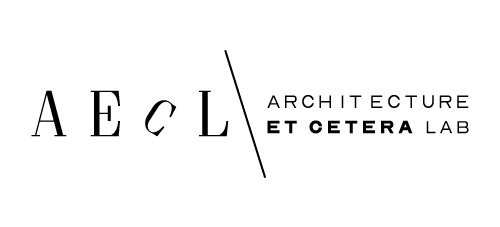THE RESIDENTIAL HABITAT IN THE COURSE OF ISOLATION
The City to You Think Tank seeks to compile creative responses to the COVID-19 imposed self-isolation measures currently affecting the world at large. It seeks to open- up a multi-disciplinary conversation about the issues related to the residential built environment of our homes, particularly in relation to the building envelope and the notion of bringing the city to the individual. The COVID-19 pandemic has affected the lives of many to varying degrees. One of the most common effects of COVID-19 has been the need to self-isolate and the consequential limitation on the performance of everyday activities which punctuate life. This crisis has put, consequently, the home in the spotlight. Homes, in fact, are undergoing a dramatic shift in their role of providing their inhabitants with the space needed to perform an array of functions which surpasses the privacy of the domestic walls. An increasing number of videos depict balconies and windows as tools to support the civic life of communities stranded in their homes and the consequent flourishing of critical pieces reflecting on the role of the balcony (from specialised publications such as Domus and Detail to more general press like The New York Times and The Guardian) in supporting the investigation of the residential space with a new lens. The proposed project offers the opportunity to reflect critically on how the residential domain is occupied and inhabited and what can be considered essential moving forward. The study is not limited to the investigation of balconies. Yet, a more systematic approach is put forth where the residential unit is dissected and studied in its layers: rooms, ancillary objects and spaces, and envelope.
The broader aim of The City to You Think Tank is to learn from current circumstances and make tangible contributions for future residential built environments that allow for new ways of living, working and recreation post COVID-19. The Think Tank has the aspiration to investigate two fundamental aspects showcased by self-isolation.
1. Personal and psychological wellbeing
The first aspect is the dichotomy presented by the need of containing a virus and overcoming the adverse impact that reclusion/confinement has on the mental health of individuals. We seek proposals that aim to address this conundrum via the analysis and testing of architectural proposals and experimentations of alternative conceptualisations for the residential envelope. Currently conceived as a definitive barrier, how can the envelope be transformed to allow contact and interaction? How can the envelope become a limen? In English limen is often translated as threshold. However, the Latin word does not just indicate a border, but on the contrary, indicates the possibility of trespassing, penetrating a newly conquered (or yet to be conquered) territory. This definition has an embedded fluidity that is key to addressing our current situation.
2. The fulfilment of communitarian and social life
A second aspect pivots around how and what elements of a communitarian life can be recreated and re-proposed within the individual residential dwelling/unit. In other words, how can the infrastructures and networks of a city (social, cultural, political etc) be brought to the individual to allow for the performance of a communitarian and social life?
CALL FOR PROPOSALS
This is a call for proposals to be included in The City to You Think Tank. We seek proposals for design works to be presented at a Round Table Event co-ordinated by the Architecture Et cetera Lab and the Design Institute of Australia and further disseminated through a professional design publication.
Possible areas of engagement include, but are not limited to, propositions and provocations for:
Envelope/ Boundary/ Limen Infrastructure in Dwelling/ Unit Inhabited walls
Furniture/ Apparatus Unexpected Experiences Different AtmospheresUtopia and Heterotopia as methods of investigation
FORMAT
The Think Tank encourages the use of creative formats. We invite contributions in a range of formats such as:
Drawing/s
Narrative writing (max 1500 words)
Physical Models (photographed and laid out)
Photograph/ Image Essay
Video/ Sound Recording
Kit for a physical object or experience)/ Instructional Proposal Games/virtual experiences
SUBMISSION TIMELINE:
Call out: 17th June 2020
Submission: Entries must be made online at www.aeclab.com.au/thecitytoyou Entries will be accepted until 11.00 pm AEST on Friday 28th August 2020.
Round Table: Wednesday, September 30th
ACCEPTED FILE FORMATS
Vector-based PDF or EPS files of drawings used with scales noted where relevant.
High-resolution image files used to compile the drawing sheets. At least 300dpi at a height of 300mm to be suitable for print. Please compile all files into an OneDrive, Google Drive or Dropbox folder and share the link via the online submission form.
.mp4 submission of video/ sound
Submissions are to be accompanied by a written description (no more than 500 words and as a Word document) which illustrates the proposal’s aim, contribution, significance, its context and background. Please state your full name, discipline and current role in this document.
ELIGIBILITY
Design practitioners, theorists, academics, artists and other built environment professionals are invited to submit. Students of these disciplines are also eligible.
Any questions related to the City to You Think Tank can be directed to hello@aecl.com.au
CONDITIONS
By making a submission to the City to You Think Tank, the applicant gives permission to exhibit, promote or publish any or all of the entries thereby absolving the Organiser from any liability relating to confidentiality, intellectual property or copyright issues that may be raised by any party. If the entry is used for promotional purposes the Organisers will endeavour to promote the name of the author and other contributors such as photographers will be acknowledged. All entrants must be prepared to edit their work for exhibition or publication purposes if required. The Organiser holds the right to reproduce materials in part or whole without payment of release or licencing fees to the holder of the publication rights or copyright.
ORGANISERS
Dr Cecilia Bischeri
Miss Jessica Harris
Dr Zuzana Kovar
